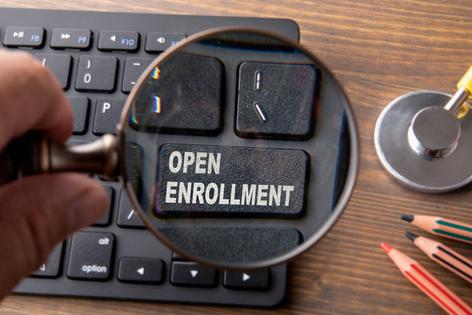Beware these 3 Medicare open enrollment scams
Published in Health & Fitness
The Medicare open enrollment period is like candy for scammers, with all the elements for a good con. During this time, seniors provide vital personal information to Medicare, which scammers may use to access their financial accounts or submit fraudulent medical claims. Scammers also know that older adults are ideal victims because they are more likely to answer the phone, be socially isolated, have significant savings or have cognitive deficits. In fact, if you or a loved one fell for a financial scam, it may be time to get tested for dementia.
Medicare recently suffered a massive data breach. The personal information of more than 900,000 Medicare beneficiaries was exposed during a data breach that occurred between May 27 and May 31, 2023. The information was stolen from a Medicare contractor, Wisconsin Physicians Service Insurance Corporation (WPS), a business that processes Medicare claims.
The federal government has taken steps to increase the protection of vital personal information. In 2018, Medicare updated Medicare cards and replaced Social Security numbers with the Medicare Beneficiary Identifier (MBI), which includes numbers and letters. In September, the Social Security Administration transitioned all users who had made their accounts before September 18, 2021, to the more secure Login.gov platform.
Here are three scams that are commonly used during open enrollment periods.
Three common Medicare open enrollment scams
Medicare card replacement scams: You may get a call claiming to be from Medicare, the Social Security Administration, or your state insurance department, insisting you need to get a new/replacement Medicare card. This scam has been circulating since 2018, when Medicare sent beneficiaries new cards with randomly generated ID numbers to better protect against identity theft. Impostors may ask to confirm your card number to “activate” your card or say you need a new one. If you need a new card, you can print a copy from your Medicare.gov account or call 1-800-MEDICARE (1-800-633-4227 TTY 1-877-486-2048) to order a replacement card to be sent in the mail.
Phony Medicare advisors: You may receive a visit or receive an unsolicited call from someone offering you free services and then asking for your Medicare information. There are no ‘official’ Medicare sales representatives and Medicare does not cold call to enroll beneficiaries or offer you a different plan. Watch out for people who promise you a gift for enrolling in one of their plans — it’s a ploy to get your personal information, such as your Medicare ID and Social Security number.
Supplemental coverage scams: Medigap and Part D prescription drug coverage are considered supplemental coverage and are often recommended for beneficiaries enrolled in Original Medicare. Supplementary plans typically have a monthly premium, which is the opening scammers use to lure you in. They pretend to offer cheaper Medigap plans or drug coverage to get your information.
Tips to avoid open enrollment scams
Shield your government-issued ID numbers. Never share your Medicare ID number, Social Security number, or banking information to anyone you don’t know.
Go directly to official websites; ignore links sent in emails or texts. If you want to make changes to your healthcare plan, go directly to Medicare.gov or SSA.gov./medicare Don’t click on links in suspicious messages.
Be suspicious of anyone who contacts you claiming to represent Medicare. Medicare provides resources to help you determine which plan is right for you. You can get free health insurance counseling from State Health Insurance Assistance Programs (SHIPs); SHIPs aren’t connected to any insurance companies or health plans. You will also need to contact them on your own. They will not call you first.
Don’t trust your caller ID. Your caller ID might show Medicare’s name or phone number. But caller ID can be faked. It could be anyone calling from anywhere in the world. If you think a call might be real, hang up and call 1-800-MEDICARE (1-800-633-4227) to check. An official Medicare representative won’t pressure you to do anything.
Medicare will never call you to sell you anything or visit you at your home. Medicare, or someone representing Medicare, will only call and ask for personal information in limited situations:
If someone asks you for payment, it’s a scam. No one representing Medicare will ask for a payment or payment information. Medicare premiums are typically deducted from your monthly Social Security benefit. Otherwise you can pay using your Medicare.gov account, using your bank’s online payment system or through the mail.
Be skeptical of free gifts. Never sign up with an insurance broker who offers you an expensive sign-up gift in exchange for providing your Medicare ID number or other vital personal information.
Bottom line
A Medicare scam is a type of identity theft. Protecting yourself from identity theft is about paying attention to how and where you use or share your personally identifiable information.
Scammers may call repeatedly, use aggressive sales tactics, and try to scare you by creating scenarios, such as the loss of your Medicare benefits, to pressure you into complying with their demands for personal information. These criminals can be very persuasive and determined.
(Donna LeValley is a personal finance writer for Kiplinger.com.)
©2024 The Kiplinger Washington Editors, Inc. All rights reserved. Distributed by Tribune Content Agency, LLC.










Comments